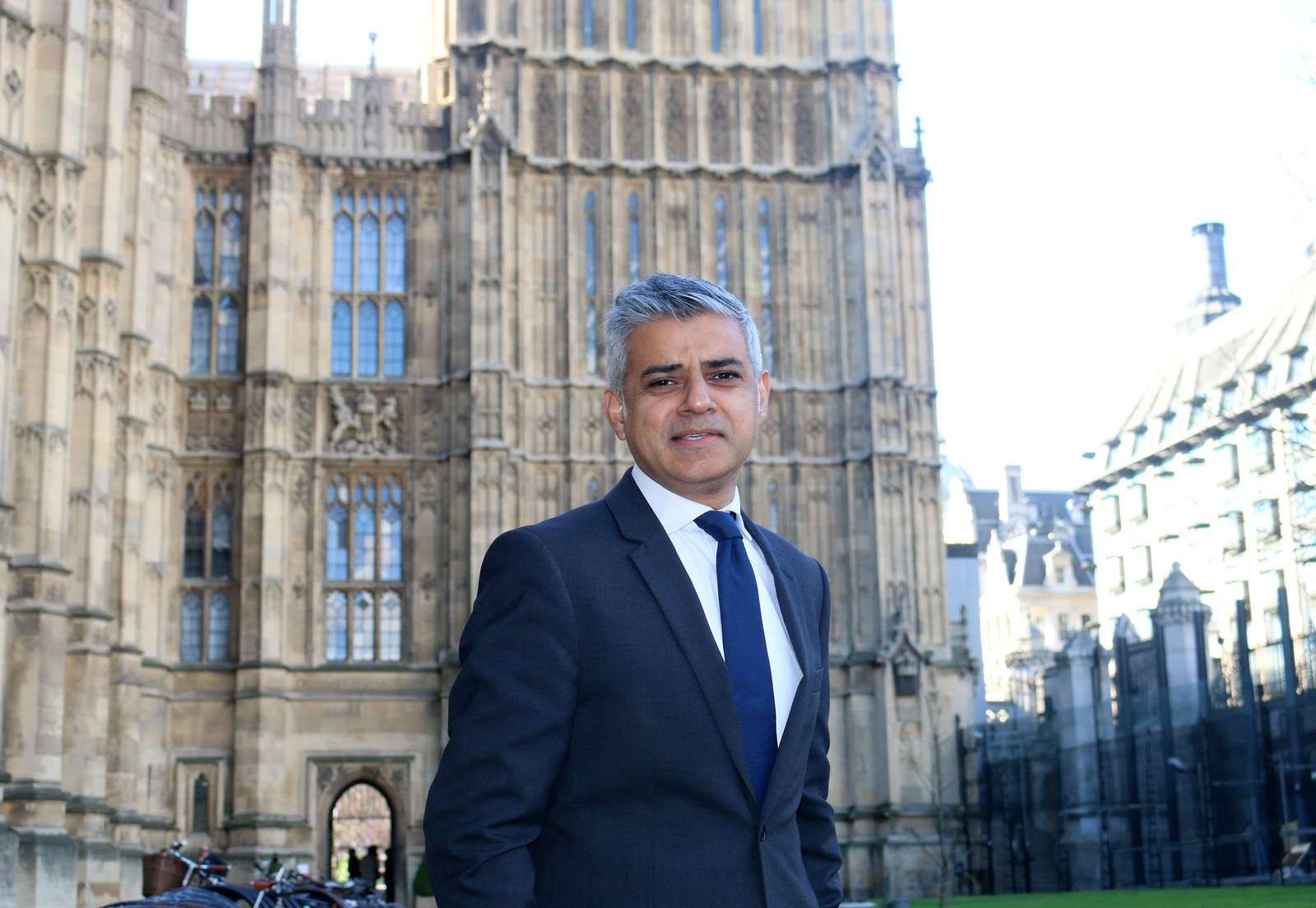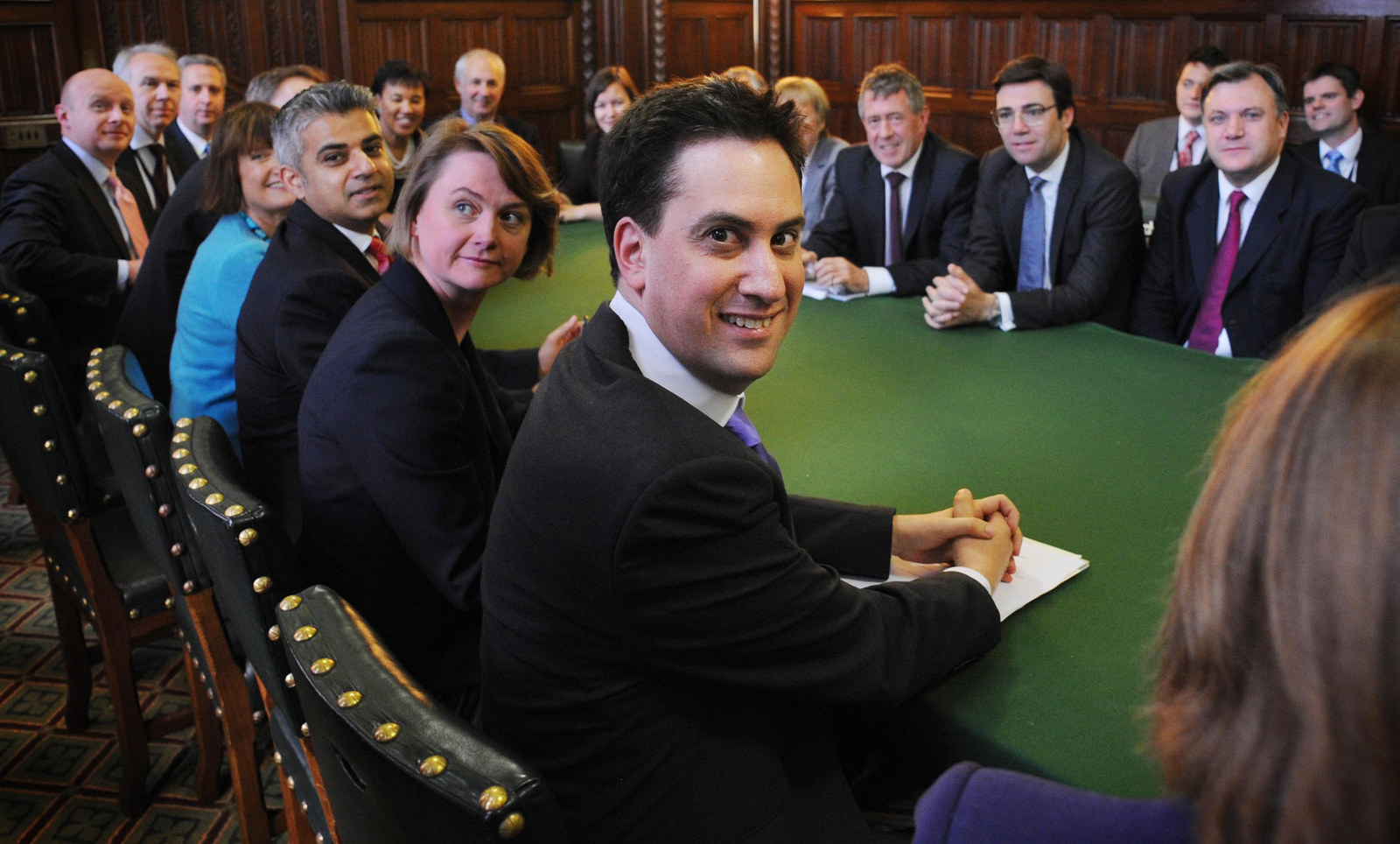When Sadiq Khan was younger, he was racially abused in school, at football grounds and at cricket stadiums. Even in 2005, when he walked into parliament as London's first Muslim MP, he found himself an outsider.
"I was mistaken for Shahid Malik, Keith Vaz – Keith Vaz, by the way, has no hair – or other MPs. The only people in here who looked like me and you," he says, referring to this reporter, "were those who worked in the cafeteria or cleaned up. So it was all a bit different for me."

Ten years later, things are a bit better. Khan is now shadow justice secretary, having played a major role in helping Ed Miliband win the Labour leadership, and has been tasked with leading a unit to reduce the number of Labour voters switching over to the Greens. He's also strongly rumoured to be planning a run for mayor of London.
But even with all this on his plate – and a general election looming – the MP for Tooting is still preoccupied with the basic issue of how to make politics more representative.
"I think the current composition of black, Asian, and minority ethnic (BAME) MPs in parliament is a disgrace," he says. At the moment, there are just 26 such MPs out of a total of 650. And that's not the only problem. "It’s also a disgrace the lack of women in this place, and the lack of working-class MPs."
Nor does he exempt his own party from criticism. Since 1997, support for Labour from Indian, Pakistani, and African voters has steadily declined, according to research by the University of Manchester. According to Khan, that's because BAME voters have been ignored.

In the past, he says, such voters supported Labour because the party offered them an alternative. Under Margaret Thatcher, Khan's father, a bus driver, saw his bus garage threatened with closure, and Khan's teachers went on industrial strike as a result of education reforms. Meanwhile, his friends were stopped and searched on a regular basis.
Despite MPs never visiting his family, he insists that BAME voters favoured Labour "on merit, because we [Labour] passed the most comprehensive anti-discrimination laws, because our policies on immigration were fairer, because we looked after working people."
But Khan accepts that the party became "complacent". "In the last Labour government," he says, "some politicians took BAME voters for granted. They assumed that because they’d always voted Labour, they’ll carry on voting Labour. There was an assumption that habit would dictate people always voting Labour.
"Just because your dad voted Labour, why should you vote Labour? Young people will do what they want to do. We’ve gotta earn everyone’s vote individually."
He says the problem is that there's a "chicken-and-egg scenario". BAME voters think politicians don't care about them and so don't vote. Meanwhile, politicians see they're not voting, so pay less attention to them.
And that's not good enough, according to Khan. "I want us to stop this nonsense," he says. "We as politicians have got to take responsibility for this."
"I went to Lord's with the intention of supporting England but [after] the racial abuse we suffered, my brother and I, we left supporting Pakistan."
As part of this, he is urging BAME voters to register to vote. The more they turn up at the polling station, he says, the more politicians will have to give them the attention they deserve.
For Khan, this isn't just about politics. Growing up in south London, he spent his youth facing discrimination. In 1982, he was an excited cricket fan looking forward to his first time watching Ian Botham, the star of the previous year's Ashes, in a match between England and Pakistan, and he remembers all the details. Mohsin Khan scored 200 runs and Mudassar Nazar took six wickets. But mostly, he's never forgotten how fans reacted.
"I went to Lord's with the intention of supporting England," he says, "but [after] the racial abuse we suffered, my brother and I, we left supporting Pakistan."

It was the same with football. Although he was born in Tooting, Khan supports Liverpool because of the racism of the local Chelsea fans at the time: The National Front were a constant presence at the stadium. "People who looked like me didn’t go [to watch] football," he tells me. "I went to Wimbledon, when they played at Plough Lane, a few times. But even there we suffered racism. Things like, ‘You Paki, what are you doing here?' I was called a 'Yid' a few times, because I went to see Spurs vs Wimbledon." He went to three different stadiums and faced abuse each time.
Of course, football has made tremendous progress in the past 20 years, as he acknowledges – although he worries that recent events such as Chelsea fans racially abusing a black fan in Paris may put off non-whites from entering the game. "It’s very distressing at a time we’re trying to encourage young British Asians to get involved in football like they are in cricket," he says.

Khan went on to carve out a respectable career as a civil rights lawyer and chair of Liberty. But when he walked into parliament in 2005 as a newly elected MP, he didn't know anyone – he hadn't spent years working his way through the Labour party as a special adviser or acting as a regional organiser.
And even as an MP, he had to deal with abuse, if of a different kind. When he voted in favour of gay marriage, he received death threats from fellow Muslims who accused him of "selling out" his religion, and police told him to take extra care in his office and at home. It's not been a trouble-free life inside parliament either – although Khan refuses to give specific examples of racism, because, he says, he wants to avoid putting others off getting involved in politics.
"Parliament is no different to other major institutions," Khan says, picking his words with care. "There is discrimination, there is racism – but don’t let that put you off. We can defeat it. The solidarity there from non-Asians, non-blacks, is fantastic. For every hate email, or hate tweet, or hate phone-call I get, there are so many more positive things that happen...
"I think that you can do so much good here, whatever the problems are, they’re insignificant when compared to the benefits you can do."
Ten years after he joined the parliament, no one can claim Khan is still an unknown. When the 7/7 attacks took place, only months after the 2005 election, he was one of four Muslim MPs called to Downing Street by Tony Blair.
But when Blair referred to the attacks as a "Muslim problem", Khan stood up to the leader of his party. "You wouldn’t expect just white people to solve issues around racism and the BNP and National Front or Ku Klux Klan," he says. "Everyone should try to solve that problem. He and I disagreed on that from the outset."
Months later, he went even further, not just voting against Labour's counter-terror legislation but seconding a motion against detaining suspects for 90 days. Later that parliament, he became the first Muslim MP to attend cabinet – though when he was told about the appointment, he reportedly called Gordon Brown back to make sure he had heard right.
In 2010, Khan acted as campaign manager to Ed Miliband and helped him beat the odds to win the leadership. Since Miliband was elected leader, Labour has run a swathe of all-women shortlists to select candidates. Khan was crucial to ensuring that a number of the party's target seats in London have candidates who are both women and from a BAME background.

But although Khan has already become an influential member of the party, his ambitions go further. Rumours have circulated for almost a year that he wants to be London's next mayor, and it is widely expected that he will announce his candidacy after the general election. When BuzzFeed News asks if he had further aspirations, of being prime minister perhaps, he recounts the tale of Mo Farah, "the asylum-seeking Muslim black man who went on to become the most successful British Olympian ever," and concludes that all he wants to do is "inspire the next generation".
Perhaps he takes on so much because he doesn't want to be labelled as "the Asian MP" or "the Muslim MP".
"I am determined to be a mainstream politician," he says. "I'm determined not to allow myself to be pigeonholed as the Asian MP, or the Muslim MP. I’m Labour, I’m a husband, I’m a father, I’m Muslim, I’m British, I’m Asian – I’m all those things."
